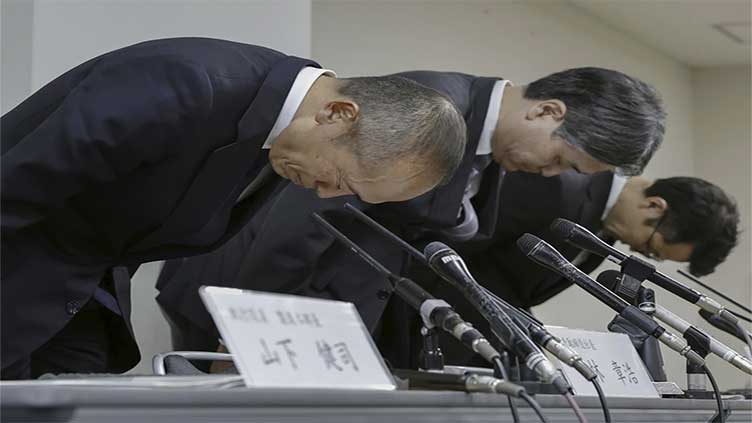Japan asks China to ensure the safety of Japanese citizens after a schoolboy was fatally stabbed

World
Japan asks China to ensure the safety of Japanese citizens after a schoolboy was fatally stabbed
TOKYO (AP) — Japan’s top diplomat asked China to ensure the safety of Japanese citizens there after the fatal stabbing of a Japanese schoolboy, and demanded a crackdown on what she called “groundless, malicious and anti-Japanese” social media posts that threaten children’s safety.
China’s Foreign Ministry said the attack was an isolated case and urged Japan to react calmly.
Foreign Minister Yoko Kamikawa asked her Chinese counterpart, Wang Yi, conduct a full investigation into the stabbing and provide a clear explanation to Japan about what happened, and to punish the suspect and implement preventive measures for the future.
Kamikawa said Beijing should take concrete steps to ensure safety of Japanese residents, especially children, in China, according to Japan’s Foreign Ministry. The two ministers met in New York on Monday on the sidelines of the United Nations General Assembly meeting.
The 10-year-old boy was stabbed on Sept. 18 near the gate of the Shenzhen Japanese School. The attacker, identified as a 44-year-old man, was arrested on the spot and is being investigated, according to Chinese officials. No motive for the attack was immediately clear.
Trump listens during a farming event in rural Pennsylvania, then threatens John Deere with tariffs
Kamikawa has said the attack occurred despite Tokyo’s request to Beijing for increased security for Japanese citizens and around Japanese schools ahead of the Sept. 18 anniversary of the Mukden Incident in 1931, which China marks as the beginning of the Japanese invasion of Manchuria, now northeast China.
On June 24th, a knife attack at a school bus stop for a Japanese school in the southeastern city of Suzhou killed a Chinese national who was trying to stop the attacker and injured a Japanese mother and her child.
Earlier in June, a Chinese man stabbed four U.S. university instructors at a public park in Jilin in the northeast and a Chinese person who tried to intervene. The four instructors from Cornell College were teaching at Beihua University. Their injuries were not critical.
Kamikawa also told Wang that “groundless, malicious and anti-Japanese social media postings and others, including those targeting Japanese schools, directly affect the safety of children and are absolutely unacceptable,” demanding China a thorough crackdown as soon as possible, according to a ministry statement.
Wang said the stabbing was an “accidental, individual case” and that China would handle the case under the law, the ministry said. It said Kamikawa and Wang agreed to further cooperate to achieve progress on the issues as soon as possible.
“China will investigate and handle this isolated attack on a Japanese student in Shenzhen in accordance with the law, and will ensure the safety of all foreign citizens in China as always,” the Chinese Foreign Ministry said in a statement issued Tuesday. “Japan should treat the matter calmly and rationally and avoid politicization and amplification.”
Safety concerns are rising among the Japanese business community in China.
Vice Foreign Minister Yoshifumi Tsuge was in Beijing on Monday for talks with his counterpart, Sun Weidong, and conveyed a similar message of concern. Tsuge then met with representatives of the Japanese business community to hear their thoughts on safely operating in China.
Tsuge said Japan is spending 43 million yen ($300,000) to urgently beef up security around Japanese schools and their bus stops during commuting hours, and plans to seek additional budget to staff security guards on Japanese school buses.
Tetsuro Honma, head of Panasonic Holdings Corp.’s Chinese subsidiary and head of the Japanese Chamber Commerce and Industry in China, told Tsuge that the latest stabbing, in addition to an earlier case in June, were extremely regrettable, according to the ministry.
Honma said ensuring the safety of employees and their families is crucial for Japanese companies operating in China.
About 100,000 Japanese students, employees and others live in China.


